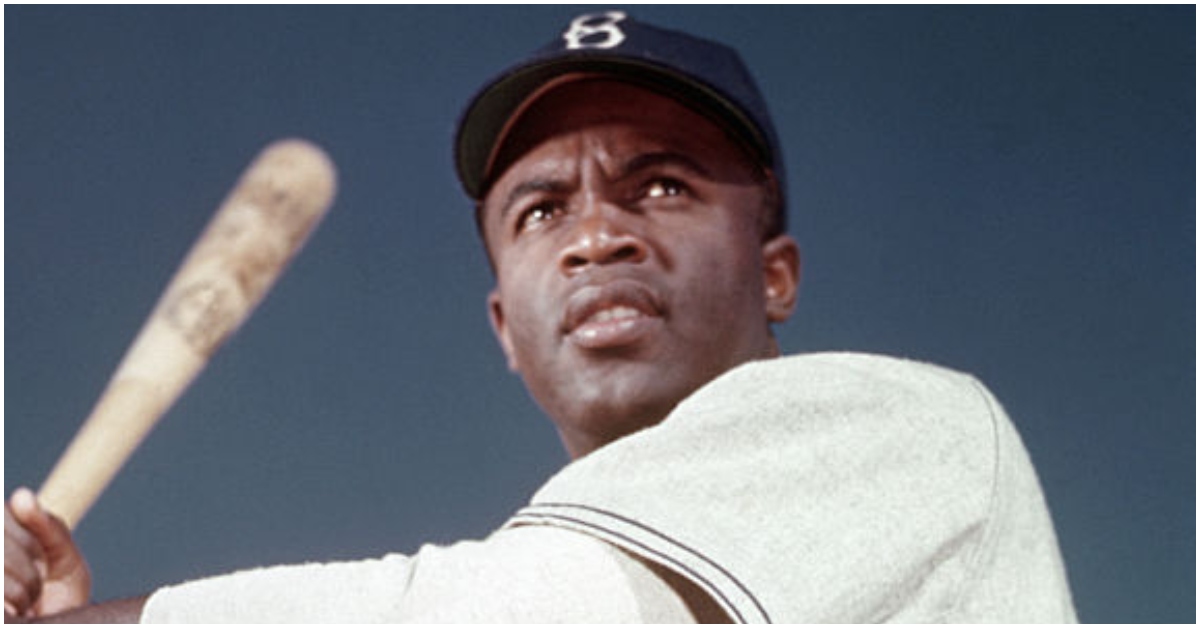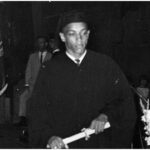Shattering Baseball’s Color Barrier
On April 15, 1947, Jackie Robinson etched his name in history by becoming the first African American player to take the field in Major League Baseball’s modern era.
At the age of 28, Robinson stepped onto Ebbets Field in Brooklyn, donning the iconic uniform of the Brooklyn Dodgers, and shattered the sport’s long-standing color barrier that had segregated it for more than 50 years.
Honoring a Groundbreaking Career
Exactly five decades later, on April 15, 1997, Robinson’s trailblazing career was honored in a momentous ceremony attended by over 50,000 fans at New York City’s Shea Stadium.
In a unprecedented move, Major League Baseball Commissioner Bud Selig retired Robinson’s uniform number 42 from all teams, making it the first-ever number retired league-wide.
Born on January 31, 1919, in Cairo, Georgia, to a family of sharecroppers, Jack Roosevelt Robinson faced adversity from an early age. Despite the challenges, he excelled in sports, attending the University of California, Los Angeles, where he became the first athlete to letter in four varsity sports: baseball, basketball, football, and track.
Unwavering Courage in the Face of Discrimination
After financial difficulties forced Robinson to drop out of UCLA, he joined the army in 1942 and was commissioned as a second lieutenant.
However, his unwavering courage and conviction led him to protest instances of racial discrimination during his military service, resulting in a court-martial in 1944, though he was ultimately honorably discharged.
Following his time in the army, Robinson played for a season in the Negro American League before spending a year with the Canadian minor league team, the Montreal Royals, in 1946.
The pivotal moment came in 1947 when he was called up to the Majors, becoming a star infielder and outfielder for the Dodgers and the National League’s Rookie of the Year.
A Trailblazer on and off the Field
Robinson’s talent and success on the field were undeniable, earning him the National League’s Most Valuable Player award and batting championship in 1949.
He played on the National League All-Star team from 1949 through 1954, leading the Dodgers to six National League pennants and a World Series victory in 1955.
His extraordinary achievements culminated in his induction into the Baseball Hall of Fame in 1962, his first year of eligibility.
Overcoming Racial Discrimination with Resilience
Despite his accomplishments, Robinson faced tremendous racial discrimination throughout his career, enduring insults and hostility from fans and even fellow players.
Jim Crow laws further compounded the challenges, preventing him from using the same hotels and restaurants as his teammates while playing in the South.
A Champion for Civil Rights
After retiring from baseball in 1957, Robinson’s impact extended far beyond the diamond as he transitioned into a role as a businessman and civil rights activist.
His unwavering determination and resilience in the face of adversity made him a true champion for equality and a beacon of hope for generations to come.





